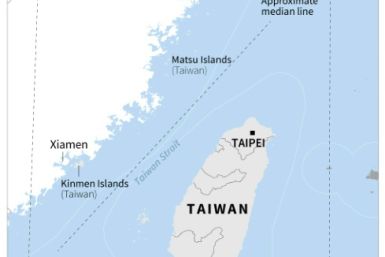Aussie Growers Seek Tighter Controls After Quarantine Rejects NZ Apples
Commercial apple and pear growers in Australia have expressed dismay after a Senate Estimates hearing on Monday heard that Australian quarantine officials have rejected just under a quarter of consignments of New Zealand apples.
Biosecurity Australia said that 13 consignments of New Zealand apples had been inspected and three were rejected for export. Reasons for rejection include the presence leaf matter and live apple leaf curling midge. Another consignment was withdrawn after a dead apple leaf curling midge was found.
Apple & Pear Australia Ltd (APAL) Chairman John Lawrenson said that the information reveals two important details.
“The detections of trash and leaf curling midge mean that AQIS inspectors are doing a thorough job and we commend these people for their expertise and diligence. It is somewhat comforting to know that AQIS is determined to protect Australia’s pest and disease free status.
“However, the most concerning aspect of this revelation is that the New Zealand Standard Orchard Practices that Biosecurity Australia accepted as sufficient to protect Australia’s pest and disease free status are clearly not adequate.
“It is now obvious to all that the control of apple leaf curling midge is difficult but it is something that should be done in the field so they do not enter packing sheds. It also appears that the midge will overwinter in cartons and other packing materials kept inside packing sheds,” Mr Lawrenson said.
Australia is free of the apple leaf curling midge which tightly curls leaves, depriving them of the ability to effectively photosynthesise.
Overall, AQIS has inspected 17,638kg or 1121 boxes comprising 87,438 apples and rejected a total of 5030kg or 280 boxes or 21,840 apples, it was revealed at the Senate Estimates hearing. The inspections took place in New Zealand and the apples never left the country.
“The current New Zealand packing shed standards are clearly not designed to eliminate all leaf litter from packed cartons and prevent apple leaf curling midge from overwintering in cartons,” Mr Lawrenson said.
“If we have this level of problem with just 17.6 tonnes of fruit exported during the quiet part of the season, I can’t imagine what sort of contamination problem would occur at the height of the season.
“Given we have just been through winter, the apple leaf curling midge would be at its lowest level of the year. In autumn, the level of leaf curling midge will be much higher with a corresponding increase in the chances of it being present in apple cartons.
“Also, as its presence increases, so does the chance of it being missed at inspections.
“We need to ensure better controls are in place on the orchards in New Zealand and not just rely on AQIS inspectors to protect the Australian apple industry,” Mr Lawrenson said.
Mr Lawrenson said he hoped the parliamentary delegation leaving for New Zealand tonight can further investigate this issue. The delegation consists of the Shadow Minister for Agriculture and Member for Calare, The Hon John Cobb, Member for Murray, The Hon Dr Sharman Stone, Member for Riverina, Michael McCormack and Member for Wannon, Dan Tehan.






